8 Sweet Things A Child Only Does When They Feel Safe & Happy With You
You are their home, shelter, soft place to land.
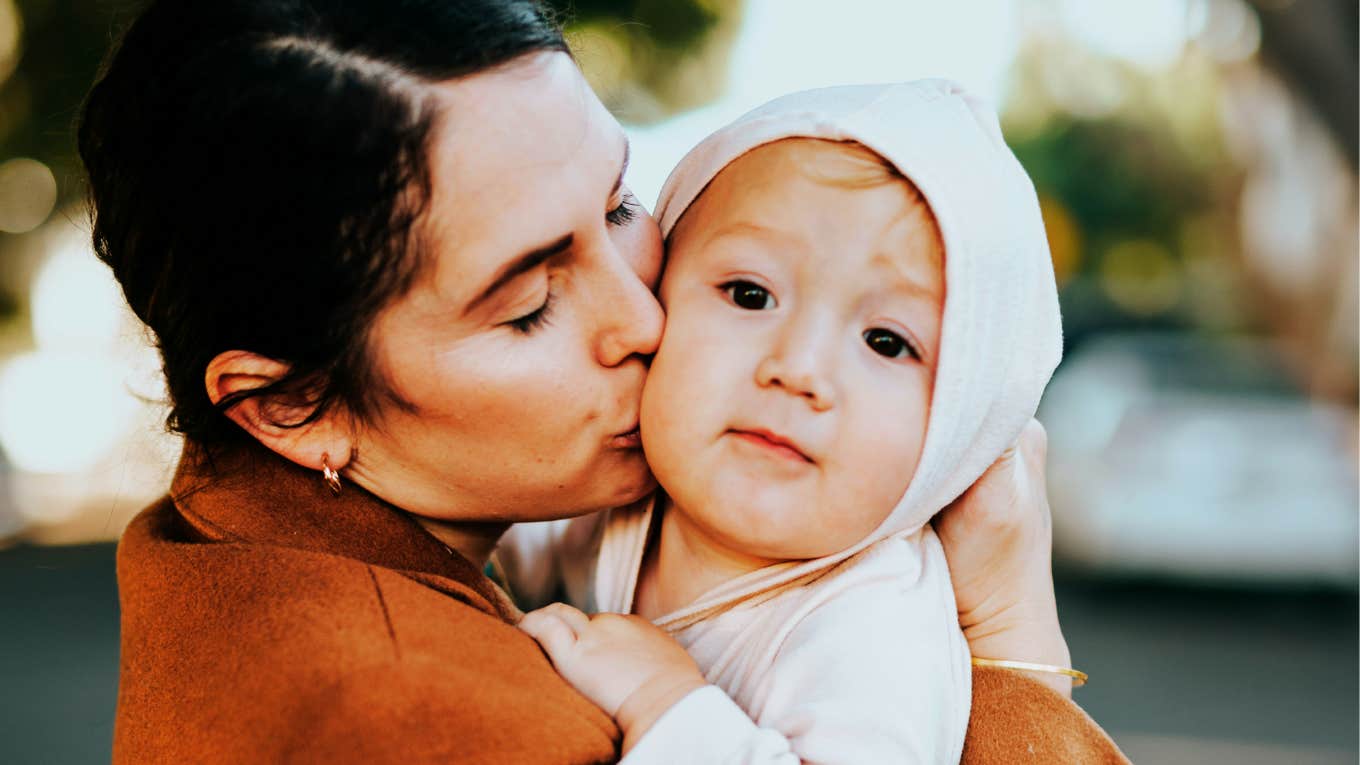 Nathan Dumlao | Unsplash
Nathan Dumlao | Unsplash Sharing secrets, letting their playful, silly side shine, wanting a big hug, expressing a strong opinion: When a child feels safe, you can experience all the ups and downs in the course of one brief afternoon.
A safe child might not always be happy, but they will feel secure to tell you exactly how they feel and what they are thinking. They might not have all the words to express it, or the emotional skills to regulate it, but when a child is in a safe space with safe people to let those big emotions out, they express it through these powerful signs of trust and comfort.
Here are eight sweet things a child only does when they feel safe and happy with you:
1. They meltdown
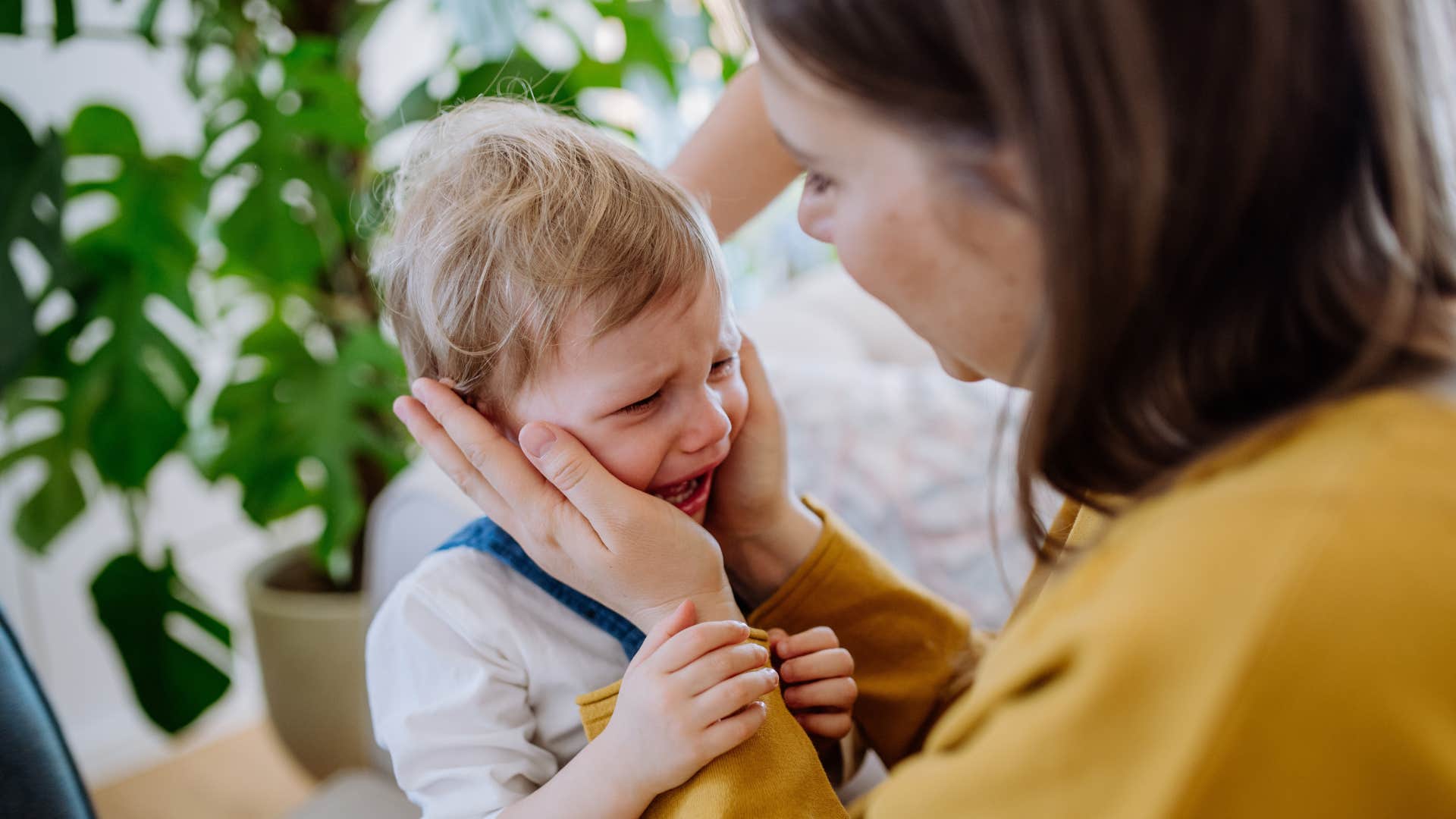 Halfpoint via Shutterstock
Halfpoint via Shutterstock
A child who feels safe and happy in your company is also a child who feels safe to have meltdowns, to cry, and to release all of the emotional energy they may be experiencing, says divorce attorney Jennifer Hargrave.
As a lawyer who has delved into countless parent-child relationships, as well as a parent to my own three children, if your child is not exhibiting any signs of unhappiness with you, that may be because they don't feel safe to share their true feelings. Instead, they may feel stressed in your presence and unable to share their feelings.
It's normal for our emotions to wax and wane, and it's normal for children to exhibit the full range of emotions when they feel safe and secure. So, if you catch yourself thinking that your children never show signs of unhappiness, it might be a red flag that your children don't feel safe with you, which provides a great opportunity for you to learn more about your child's development stage and how to provide reassurance to them.
Likewise, if your children are exhibiting signs of emotional upset in your presence, that might be because you are their safe place. Learning how to help them name the emotions and work through those emotions is a great life skill you can teach them.
2. They jump into your arms when they're scared
 Evgeny Atamanenko vioa Shutterstock
Evgeny Atamanenko vioa Shutterstock
Psychologist Aline Zoldbrod explains that if a child grows up with a supportive and safe caregiver, the sense that "someone will take care of me" becomes cemented into their brain and their neurological system.
I will never forget the day I took my daughter to her first day of kindergarten. I did not realize that she was terrified. (Maybe that does not speak so well for me!?) She did not act nervous or distressed.
At any rate, I brought her into the classroom, and I stood with my child, briefly talking pleasantries with her kindergarten teacher. All of a sudden, with no warning whatsoever, my daughter jumped straight up from the floor and landed in my arms. I doubt she remembers it. I'll never forget it.
3. They share their favorite thing with you
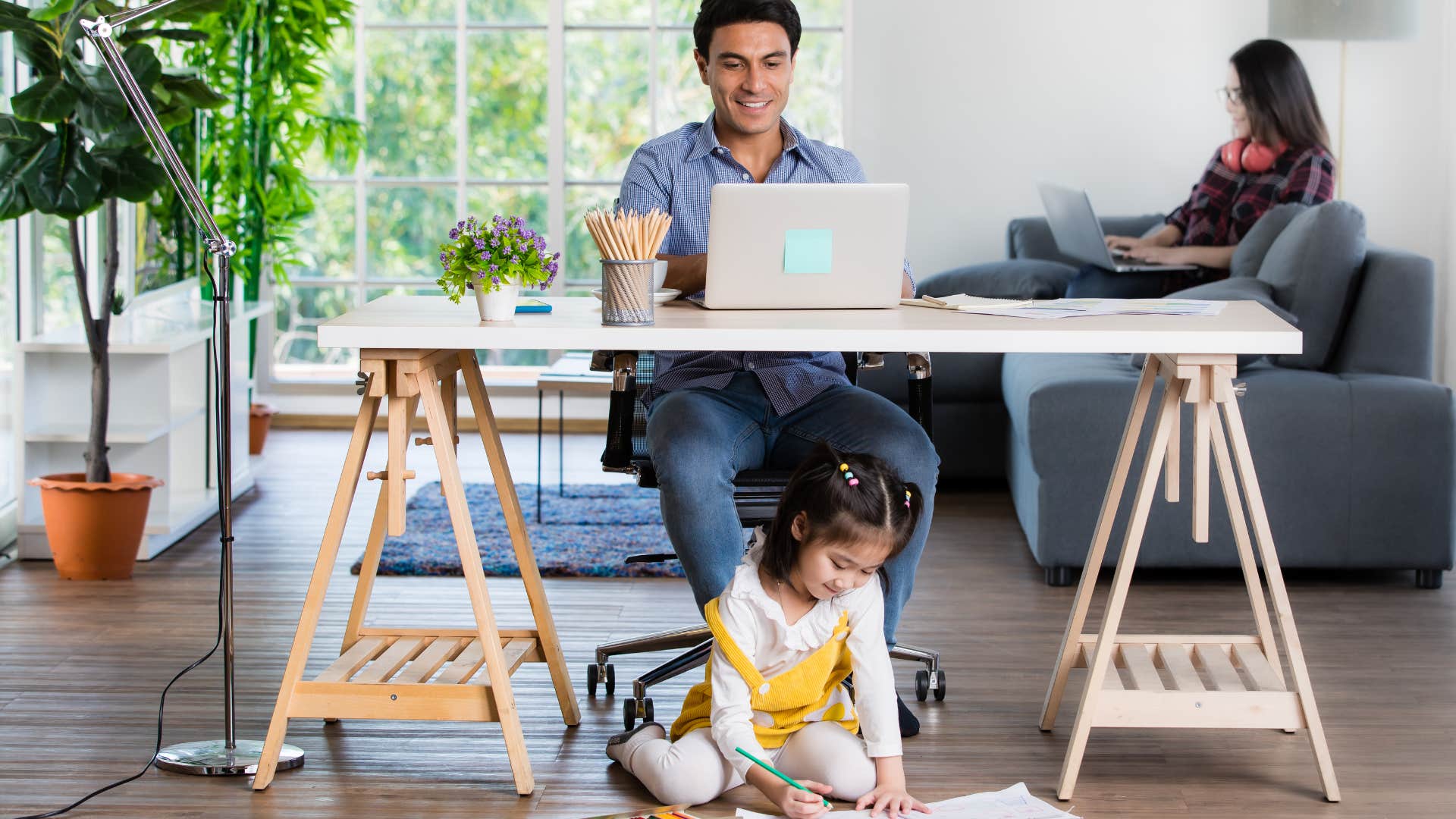 Sura Nualpradid via Shutterstock
Sura Nualpradid via Shutterstock
I'm always touched when a child brings me a toy or a trinket they treasure and shows it to me. shares therapist Dr. Gloria Brame, Ph.D. It's especially amusing when it comes out of the blue. They suddenly disappear, then reappear silently, clutching something in their little hands. They look like they feel very important when they do, and you can see the hope in their eyes that you will treat it as precious, because that's how they see it.
If you have any soul at all, you're going to make them feel it was well worth the effort. You'll let them know you appreciate their treasure and, by extension, respect and acknowledge them as important too. It's a sweet, natural ritual of human life.
4. They come to you about their problems
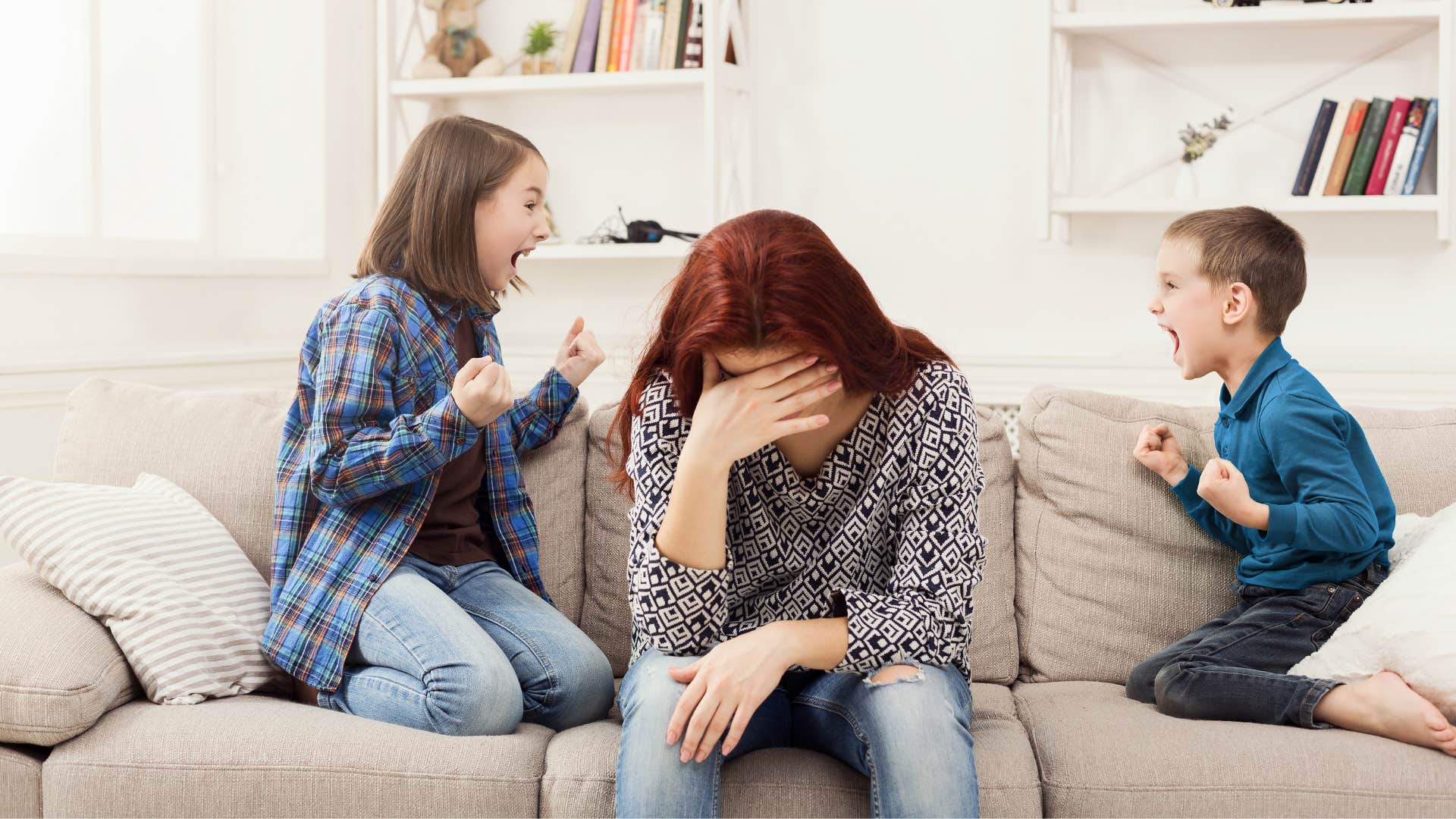 Prostock-studio via Shutterstock
Prostock-studio via Shutterstock
Therapist Mary Jo Rapini advises that when a child feels safe, they will come to you with any problems they're having. How to handle? If it's an issue with a sibling, for instance, make clear what behavior you will not tolerate, and then follow through with consequences.
Intervening in sibling rivalry should be done with careful thought and diligence. Giving siblings the chance to work out their issues and conflicts is important, but when parents are busy or not present, there can be a tendency for one sibling to repeatedly victimize another, and this pattern continues unchecked.
5. They feel emotionally secure with you
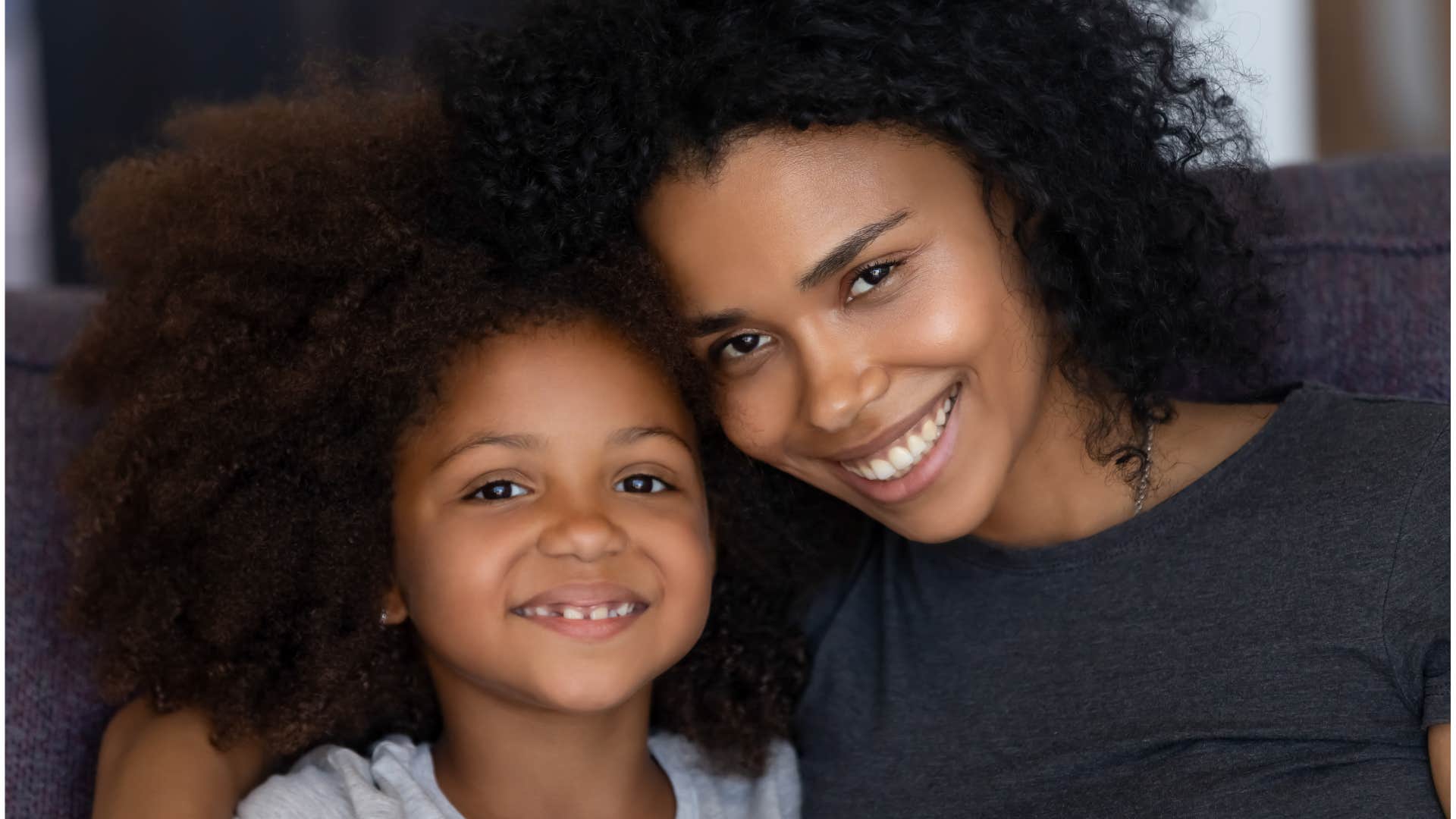 fizkes via Shutterstock
fizkes via Shutterstock
One of the central tenets of a securely attached parent is someone who can be emotionally attuned, responsive, and effective at soothing, explains therapist Eli Harwood. That means we have to be emotionally calm and grounded most of the time, particularly in the moments when our children are not.
If we have not made the reflective efforts to understand our own emotional needs and experiences in childhood, and how we developed as a result, our efforts to act calm or nurturing will be less effective because we will either be too shut down or too amped up for our presence to be calming and reassuring to our children. If we want our children to experience security from us, we must have actual emotional security to lend them.
6. They give you their opinion
 Dragon Images via Shutterstock
Dragon Images via Shutterstock
Psychotherapist Chamin Ajjan says that when a child feels safe with you, they'll feel comfortable expressing their thoughts on things — and if you thought listening to them was interesting, wait until you ask them what they think about something. By giving them a platform to express their opinions, you are telling them that they matter.
And when you learn more about your kids’ ideas, assumptions, and beliefs, you get the chance to know them and connect with them on a deeper level. Knowing that their opinion matters to you will surely give them the feels.
Research suggests that actively soliciting and considering children's opinions can foster positive parent-child relationships, enhance children's self-regulation, and improve overall well-being. By actively seeking feedback, parents can gain valuable insights into their children's perspectives, needs, and preferences, leading to more effective and tailored parenting approaches.
7. They don't hide feelings
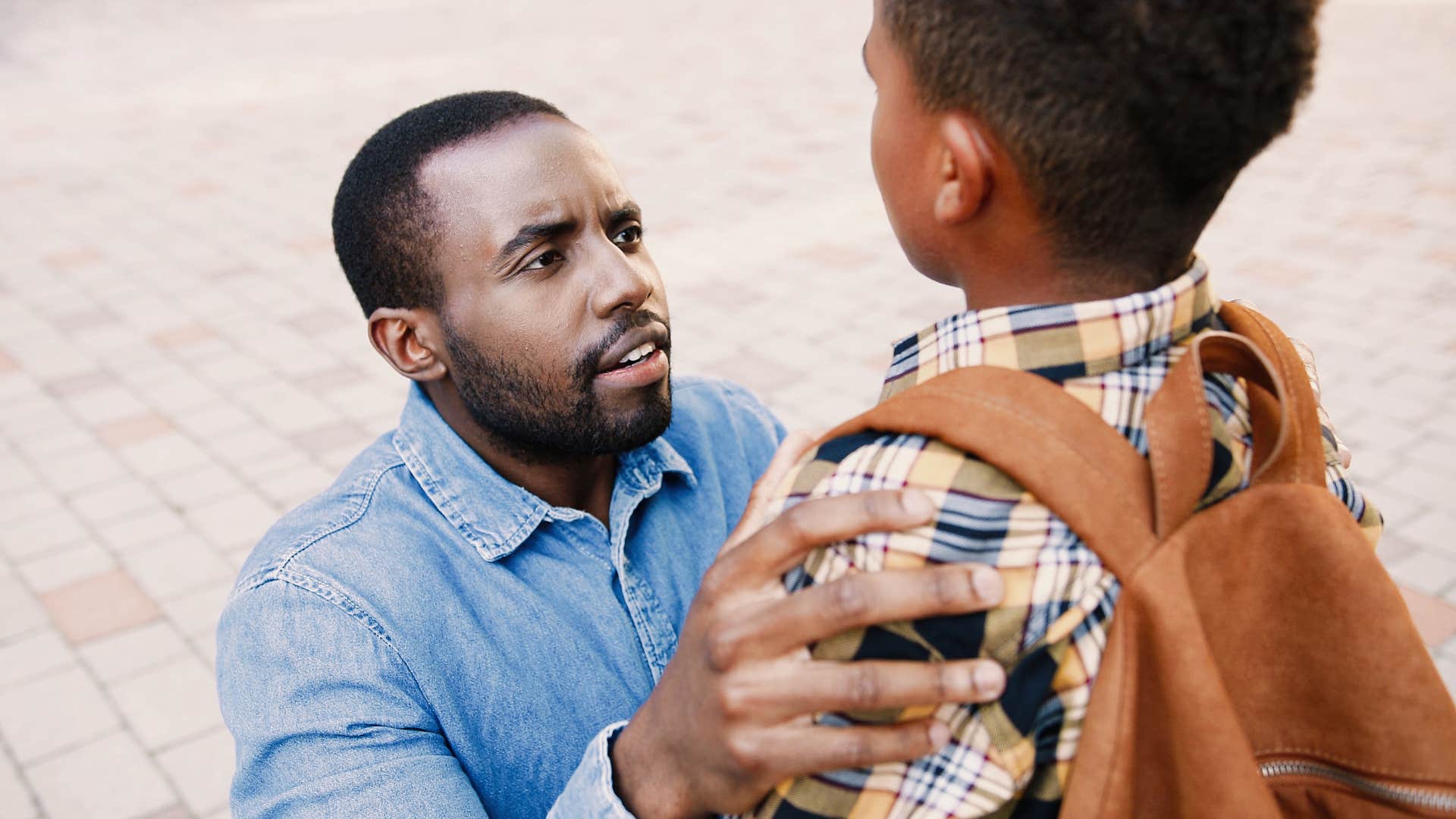 VAKS-Stock Agency via Shutterstock
VAKS-Stock Agency via Shutterstock
The unfortunate truth is, children who don't feel safe often hide their feelings from their parents, cautions therapist Mindi Lampert. They do this for different reasons. Sometimes, they think their parents will be angry or sad.
Children often try to protect their parents from getting hurt. This is especially common in cases of separation and divorce.
It’s important for parents, teachers, and caregivers to develop or enhance the emotional trust they have with their children. You want your children to know you can handle anything they tell you about how they feel. You want them to know how important it is for you to understand their true feelings.
The benefit of greater emotional trust is the comfort and confidence that it brings to the child. Once they truly feel that you care and see that you're listening and validating their feelings, they'll be more likely to disclose to you again.
8. They love being around you
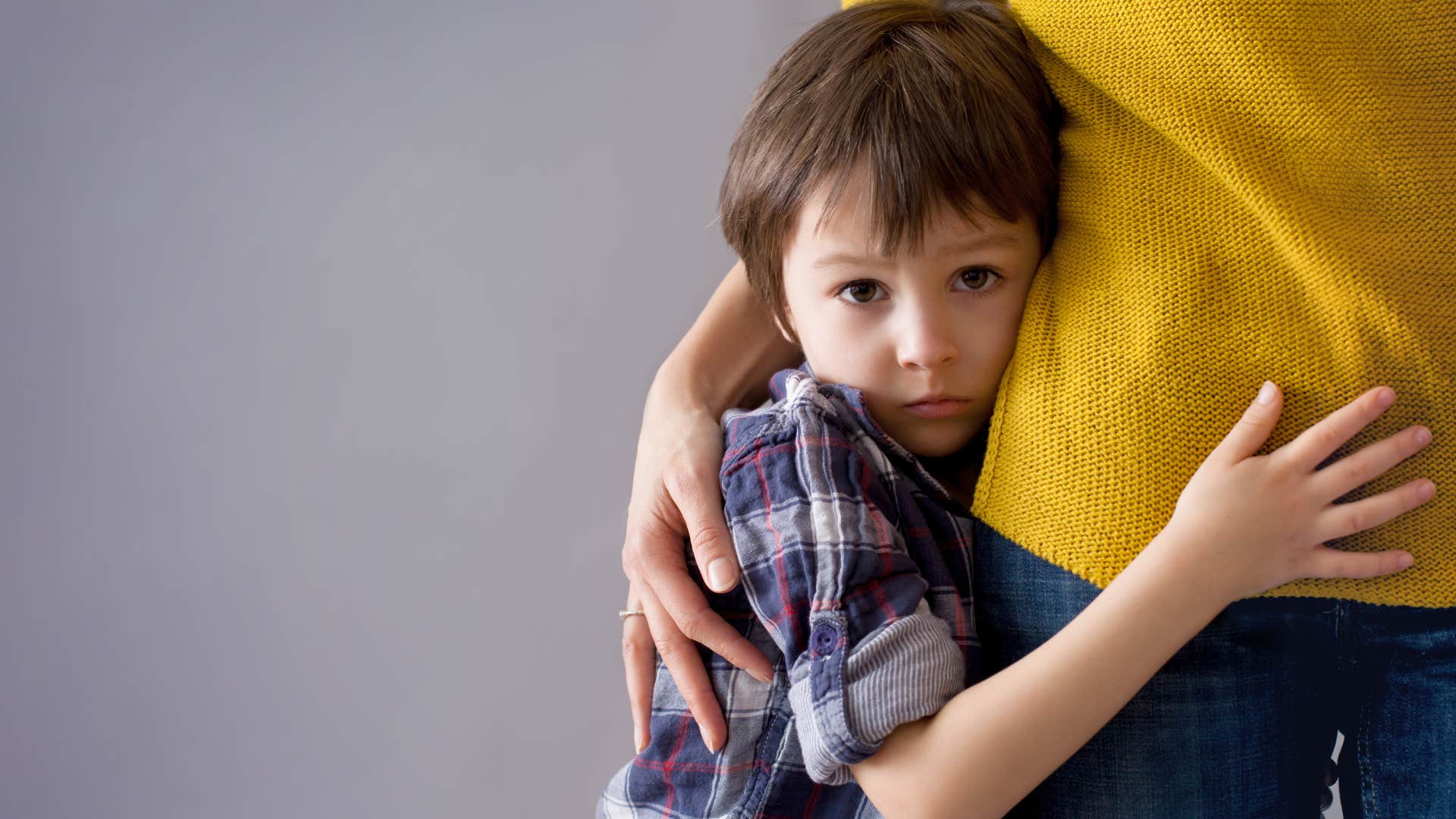 Tomsickova Tatyana via Shutterstock
Tomsickova Tatyana via Shutterstock
Astrologer Aria Gmitter gives another layer of insight: children love presence, regardless of their age. When they feel safe and secure around you, a child will be like Velcro in your life.
As a parent, caregiver, or friend, you'll need to encourage them to develop their autonomy and grow more independent in their own lives, because their loyalty will make them prefer to be with you wherever you are. You can always tell when a child feels safe and happy with a person because they exhibit behaviors they would not display with people they feel uncomfortable around.
Children are so wise and sensitive to energy. They are openly expressive and optimistic by nature. So, when a child feels safe and happy with a person, they will invite you into their world. They will want to share their food, give you hugs and kisses, talk to you, and laugh. A child will find excuses to be in your presence and look for reasons to make you smile. They become your biggest cheerleader and greatest fan.
Children are so good at dishing out compliments even when little. You will see children bring their loved ones gifts, such as a flower from the yard or a ball of lint from a pocket. As teenagers, they will ask you to look at their text messages to find out how to answer a friend. Or get them out of a potential event they don't want to go to, so they can be with you instead.
As adults, they will fly into town or FaceTime you from across the globe to hear your voice or see your face. They are little shadows when they feel safe with you because they know it's okay to love someone as deeply as you can. After all, you are their home, shelter, soft place to land. All the guards around the heart can go down, and your relationship is one they cherish more than anything in the world.
Will Curtis is YourTango's expert editor. Will has over 14 years of experience as an editor covering relationships, spirituality, and human interest topics.

